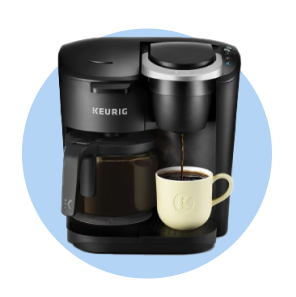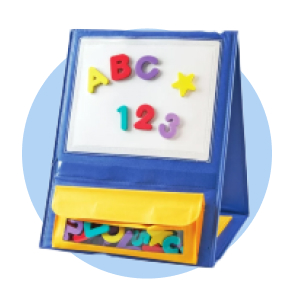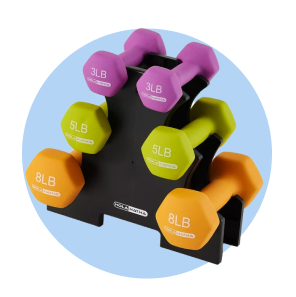
10 Things to Look for in Business Security Solutions
Modern solutions for modern businesses
When it comes to security, growing businesses need more than cameras. There are also alarm systems, access control equipment and enough support to handle expanding infrastructure. That’s why it’s helpful for owners to invest in a business security solution that fills the gaps you know about—and the others you may have overlooked. Let’s take a closer look at the systems and features business owners and security teams need to protect an entire operation.
What are business security solutions?
Business security solutions aren’t just a security system—they’re flexible packages of products and services ranging from cameras to locks to staff that can be tailored to fit your business and industry. Most vendors offer different packages that you can customize in various ways. Depending on the solution, you may also have access to long-term services like technical support, firmware updates and training resources.
What do you need from large business security systems?

1. Access control
Access control systems are the physical and electronic barriers that block someone from entering a space unless they have the authorization to do so. A retail store might install a digital keypad beside a locked staff entrance, limiting access to employees who have a code. Alternatively, a parking garage might bar entrances with gates that only lift once someone pays a fee.
Access control is a deceptively simple process that encompasses a huge range of security products. Take a locked door, the simplest form of access control. The system managing this door might use:
- A traditional mechanical lock with physical keys
- A magnetic lock and digital card reader
- A mechanical lock with a mechanical keypad
- A mechanical lock with an electronic keypad
- An electronic lock connected to retinal and fingerprint scanners
Despite the variety of options, most businesses need something that allows employees into a building without relying on physical keys which are easy to lose. Keypads and electronic card readers are a good middle ground that lets owners control access without making the system too complex to manage effectively.

2. Video surveillance
Camera systems make it easier for business owners to monitor any room in their facility. Most systems spread cameras throughout the building, focusing on high-traffic sectors and locations where valuables are kept. Camera systems also extend beyond the cameras themselves to address storage systems, motion sensors and control panels that let staff manage the system. A particularly large enterprise may require an entire control room where multiple monitors track activity across the entire facility.
3. Alarms
Alarms let owners, managers and employees know when something has gone wrong elsewhere in the security system. An alarm tied to access control might trigger when someone tries to breach a door or window. Other alarms could warn staff when shoplifting is occurring or notify customers of an emergency.
4. Emergency
Emergency systems are independent processes within a security system that activate in specific emergency or disaster scenarios. The most common are fire alarms that activate in response to smoke, but can also include weather alerts or evacuation warnings. Emergency systems also aren’t just auditory—many include flashing lights so people who are hard of hearing pay more attention to what’s happening around them.
Safety is the most crucial goal of any emergency system, to the point that it can override other security system functions. For example, when a fire alarm goes off, it can automatically unlock doors that were sealed by access control systems, ensuring everyone can leave as quickly as possible.
5. Cybersecurity
Stealing data is often just as profitable as stealing physical merchandise. As a result, many business security solutions now include cybersecurity in their standard packages. These features are particularly helpful for businesses that need to secure sensitive data, such as customer records, proprietary information or financial details.
Cybersecurity solutions include a combination of antivirus tools, malware protection and firewalls to secure access to computer systems. If you’re planning on adding cybersecurity, it would be smart to prioritize ransomware defense—68% of the world’s cyberattacks lock systems until owners pay a fee to regain access.
6. Compatibility
Make sure whatever business security solutions you’re considering are fully compatible with all aspects of your business. There’s no point in buying a cybersecurity platform that won’t recognize your computers or an access control system that won’t work with your main entrance’s sliding doors.
Most importantly, large businesses usually have some kind of security infrastructure in place before they start looking for a security solution. Instead of a full system, they might just need new cameras or alarms that integrate with existing equipment. By focusing on compatibility, you’ll save money on upgrades and spend less time training staff on using new equipment.
What do you need from business security services?
Most business security solutions will pair their products with additional services. These can be particularly useful for businesses that don’t have security staff or lack the resources to manage features like overnight alarms in person.

7. Monitoring
Not all businesses maintain a staff presence 24 hours a day, which is why security solutions provide alarm monitoring services. When a monitored alarm activates, the system notifies a dispatcher who can evaluate the situation and take direct action.
Let’s say an alarm goes off after a business closes for the day. The dispatcher can then:
- Confirm where the alarm occurred, such as a main entrance or within the building.
- Review logs to see if anyone attempted to log in and perhaps set off the alarm accidentally.
- Call the business owner to inform them about the alarm and make recommendations.
- Contact police or security professionals who can investigate further.

8. Storage
Recordings from security cameras require a lot of digital storage—even a handful of cameras will fill multiple terabytes within a few days.
Business security solutions can address this need in two ways. The first is offering dedicated hard drives that local staff will manage on-site. Alternatively, the system can automatically upload footage onto a cloud platform. Along with simplifying your storage, cloud platforms ensure there are off-site backups you can reference should equipment be damaged.
9. Installation
Installing the best business security system will be a complex and time-consuming process—one that larger enterprises will need to repeat if they have multiple locations. Security solutions include installation services for this reason, ensuring that cameras, alarms and sensors are set up to the owner’s specifications. Technicians can also confirm that any equipment requiring online access connects properly so services like alarm monitoring can function. At a minimum, a thorough installation is the best way to benefit from your security solution on day one.

10. Customer support
What happens if a camera breaks down? What should you do when an alarm goes off for no obvious reason? Customer support can help you troubleshoot these problems and, if necessary, arrange for a technician to make repairs. Be on the lookout for solutions that offer 24/7 support.
Need more security support? Walmart Business can help.
The right security solution is always built on the right security products. At Walmart Business, we can help with a wide selection of commercial-grade alarms, wireless security cameras and more.
Do you already have an account with us? Upgrade to a Walmart Business+ membership for free shipping,1 free delivery from stores on orders over $352 and 2% back in Walmart Business Rewards for purchases over $250.3 Sign up now for the chance to save over $500 each year!4 Learn more here.


Limited-time offer
Unlock your special promo code
Stay informed on Walmart Business news & get $20 off a $100 purchase!1
1Minimum order of $100. Promo code can be used one time & may not be combined with other offers. Offer not transferable & void where prohibited by law. Customer responsible for all applicable taxes. Offer expires 12/31/2025 at 11:59pm PT. Further restrictions apply. See terms at checkout for details. Promo code offers available in limited quantities. While supplies last.
1 Excludes most Marketplace items, freight and certain location surcharges.
2 Restrictions apply.
3 Rewards can only be used toward future purchases on Walmart Business. Additional terms apply.
4 Savings based on 1 free $35+ delivery order vs. $9.95 fee and 1 free shipping order under $35 vs. $6.99 fee biweekly, plus 2% Walmart Business Rewards on monthly order >$250 (average value of $400).
Exciting news awaits
Hear firsthand about new products, features & promotions.
By clicking submit, you agree to receive emails about Walmart Business and acknowledge you have read and agreed to our Terms of use and Privacy Policy.










